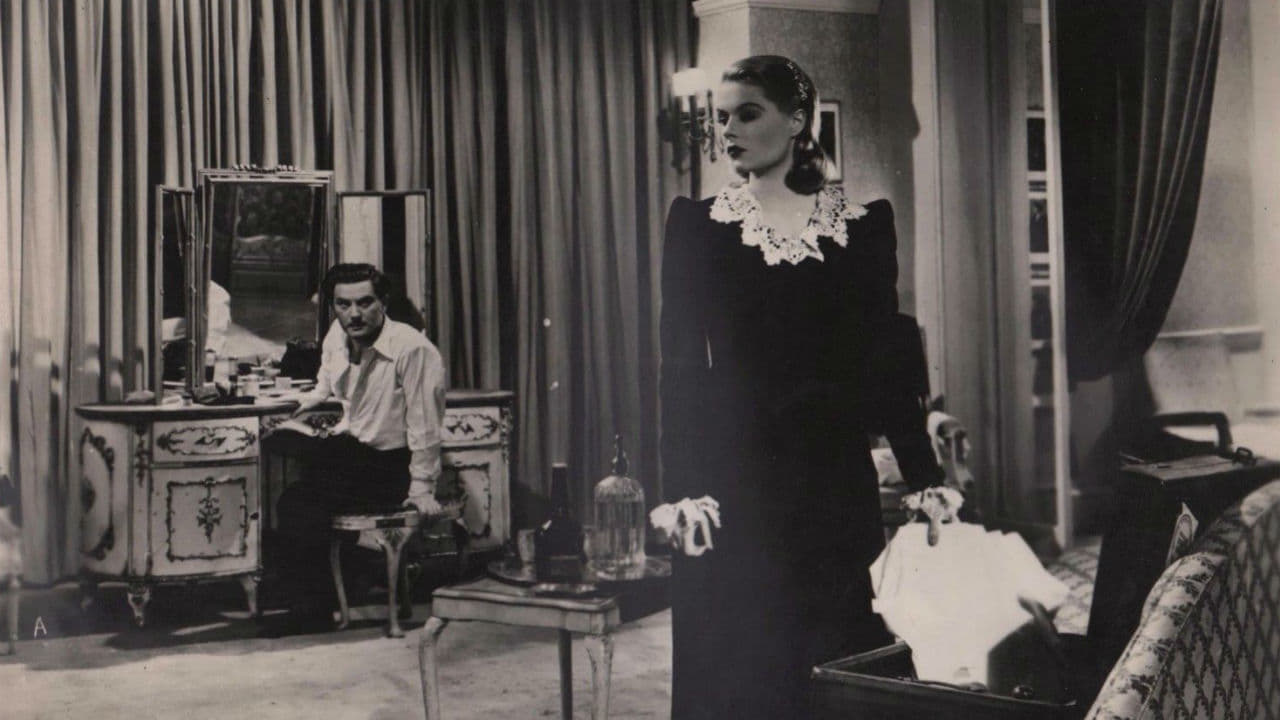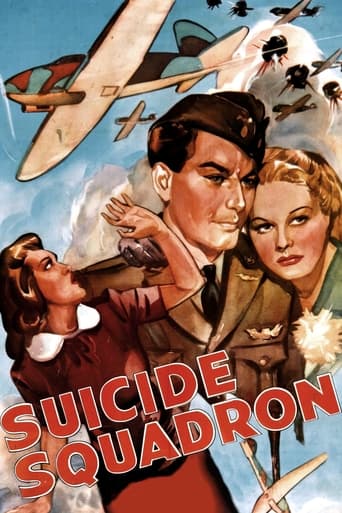

It was inevitable that the piece of music Richard Addinsell composed for this film would become more popular than the movie itself, when it is heard over and over again in the 94 minutes original version or in the 82 minutes reduction made in the United States. Even at this shorter version, the movie seems overlong, because it takes too much screen time to tell a very simplistic patriotic tale. There is not enough passion transmitted by the Polish pianist and his American bride to carry on the movie, and on top of that, too much screen time is given to Derrick De Marney as an Irish suitor, who is supposed to be fiery and passionate but seems rather lame. Poor Sally Gray (25 years old) is trapped in the middle of Anton Walbrook who was 45 and De Marney, 35. The film is interesting up to the leading characters' wedding but after that, it becomes more routine than the previous first part. When Brian Desmond Hurt films the climatic concert as static and dull as he could manage, then you know there is not much to do, but wait for one air battle of the kind you have seen dozens of times. Only Addinsell was truly inspired when he worked in this production, so he deserves all the success of his «Warsaw Concerto».
... View MoreAnton Walbrook and Sally Gray fall in love in "Dangerous Moonlight," a 1941 British film also starring Derrick Marney. The story is told in flashback. When we first meet the famous Polish pianist-composer Stefan Radetzky (Walbrook), he is an amnesia victim to whom the doctors have given a piano in the hopes that he will remember something. We then see what brought him to this point. He is a fighter pilot who first meets Carol (Sally Gray), a beautiful American reporter, in Warsaw while he is grounded. There is an instant attraction; six months later, when the Germans have invaded Poland, Radetzky comes to America to give concerts in order to raise money for Polish refugees. He and Carol meet again and decide to get married. He finally decides to go back and fight, but Carol doesn't want him to leave.Sally Gray had a nervous breakdown after this movie that kept her off the screen for five years, but I doubt it had anything to do with "Dangerous Moonlight." Later on, she became a Baroness and retired, even turning down an offer from Hollywood. She's lovely in the film, though doesn't make much of a stab at an American accent. Given that the character comes from money, though, her accent is probably fine, as young women in the better schools were taught that British-type accent anyway. Anton Walbrook is very suave and attractive.This is a propaganda film that seems to have dashed out without much of an eye to detail - it has German planes flying upside down, and I doubt very much if "Radetzky" spelled that way is Polish. The goal of the film was to keep up morale and also to encourage the U.S. to stop its policy of isolationism. Since it wasn't released in the U.S. until April of 1942, England had already gotten its wish.What makes "Dangerous Moonlight" memorable is the music, notably the Warsaw Concerto, purportedly written by Radetzky, in reality written by Richard Addinsell. Pianist Louis Kentner dubbed the piano for Walbrook and plays the Chopin Polonaise as well. The Warsaw Concerto is very haunting music, just beautiful.If you're not familiar with Sally Gray, and you like beautiful music, you might want to check out this film. As a bit of trivia, the Beatles song "A Day in the Life" was actually written about Sally Gray's stepson, who apparently crashed John Lennon's car.
... View MoreAn article in a British newspaper recently referred to this film not by its correct title but as "The Warsaw Concerto". (No film of that title has ever been made). This perhaps illustrates how the film's reputation has been eclipsed by that of its famous theme music. Richard Addinsell's music, later elaborated into a real concert piece, is still to be found in the classical repertoire more than sixty years after it was written, but the film has largely been forgotten.This is not really surprising, as the film itself is not all that good. It is a standard wartime combination of romance and propaganda. Sometimes, as with "Casablanca", this formula could result in a classic film of lasting quality, but "Dangerous Moonlight" is not in the same class. The central character, Stefan Radetzky, is a world-famous Polish pianist and composer, who also holds a commission as a fighter pilot in his country's air force. Following the German invasion of Poland, Radetzky escapes to America where he pursues his career as a concert pianist and also falls in love with, and marries, a beautiful female journalist. Tensions in the marriage arise when Radetzky decides that it is his patriotic duty to travel to Britain and to join the Polish air squadron which has been created to continue the struggle against Nazism. His wife, however, feels that his place is to remain in America with her.The film's propaganda function was twofold. Its makers aimed not only to keep up morale in Britain by highlighting the contribution to the war effort of our Polish allies, but also to influence public opinion in still-neutral America. The brilliant musician Radetzky stands as a symbol of that European high culture that was in danger from Nazi barbarism. The isolationist position of many Americans is made to look selfish and short-sighted. This position is adopted for a time by Radetzky's American wife Carol, until she comes to understand that her husband's duty is to fight for his country and that hers is to support him in that fight.Like many propaganda films of the time, this one was obviously made quickly and on a small budget. The acting is not distinguished and the sets, such as the bombed ruins of Warsaw, are clearly artificial. One thing that is, however, surprisingly good is the scenes of aerial combat; I have heard it suggested that genuine footage of dogfights was used. Apart from the music, however, this is not really a memorable film. 6/10 (5/10 for the film, with a bonus point for the music).A couple of goofs. The hero's surname was obviously chosen for its musical associations, but the normal Polish spelling would be Radecki. Radetzky is a Germanised form; Strauss's famous march was named after an Austrian general. At one point during the dogfight scenes we see a German bomber with its identification letters the wrong way round; these frames had obviously been inverted.
... View MoreThis film is the one which introduced the 'Warsaw Concerto', one of those almost classical pieces ('The Dream of Olwen' is the other major one) which are effective and burrow their way into your consciousness. Anton Walbrook is traumatised by something that happened when he was a flyer, and Sally Gray is the love interest who is trying to get him back. The performances are finely tuned but really it is the music which is the star. The film itself is typical of its type, over-dramatised British 40s drama at its worst. As such it is watchable but far from great!
... View More